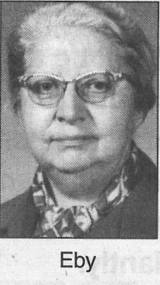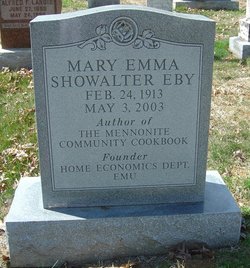Shirley Hershey Showalter wrote in her recently published memoir, Blush, “Almost every culture and religion uses food to support its most cherished values.” MennoMedia believes that strongly.
Do you think about how your values are conveyed in what you grow, cook, buy, eat and share?
For 1 1/2 days in September, I was invited to speak at Amigo Centre near Sturgis, Michigan on Mennonite cooking. It was the second part of a week-long “Study in Shared Heritage: The Amish and Mennonites,” with 24 participants in the international Road Scholar program (formerly ElderHostel), which combines learning and tourism. They had lectures, looked at videos, visited an Amish home and woodworking shop, and other Amish businesses, and were treated to an Amish “thresher’s” dinner.
None of the participants were Mennonite, but all were interested enough in everything Mennonite that they spent a week learning and absorbing Mennonite and Amish faith and culture. Some of them already owned More with Less Cookbook. Along the way, they were learning what it means to be Anabaptist.
The highlight of my time with these Road Scholars was a session arranged by Mandy Yoder, adult program director at Amigo Centre. She invited a local Amish mother, Maggie, to help the participants learn how to make homemade noodles. So we all got to make our own batch, cut, and dry them—using a beautiful mini-drying rack made for us by an Amish woodworking shop.
 Maggie is a petite young woman with two toddlers at home—who I think was happy to send them off with her husband for the morning. She seemed to enjoy interacting with us and gave permission for us to photograph the process including herself, as long as she did not pose. She and Mandy (who herself was born into an Amish home) made up a huge batch of homemade noodles for us to enjoy at lunch that day, and then helped us make smaller batches to roll out and take home. There was even one batch of gluten-free noodles for a participant with that allergy.
Maggie is a petite young woman with two toddlers at home—who I think was happy to send them off with her husband for the morning. She seemed to enjoy interacting with us and gave permission for us to photograph the process including herself, as long as she did not pose. She and Mandy (who herself was born into an Amish home) made up a huge batch of homemade noodles for us to enjoy at lunch that day, and then helped us make smaller batches to roll out and take home. There was even one batch of gluten-free noodles for a participant with that allergy.
 Maggie, center, helping Road Scholar participants manage their dough.
Maggie, center, helping Road Scholar participants manage their dough.
It was a little like 7th or 8th grade home economics all over again (I know, few schools still offer these basic classes), with overgrown “kids” wandering around with their batch of dough asking if they’d added enough flour:
 How long should the noodles dry?
How long should the noodles dry?
 Were they dry enough to run through Maggie’s handy dandy noodle cutters? And so on.
Were they dry enough to run through Maggie’s handy dandy noodle cutters? And so on.
 Will any of us ever make homemade noodles again?
Will any of us ever make homemade noodles again?
 I enjoyed learning from better cooks.
I enjoyed learning from better cooks.
Without the roller and cutters, it is daunting. In preparation for this session I made two batches and I’ll have to say Maggie’s recipe was even better than the one I tried. But if economic conditions get really tough, it is nice to know that you can still make food-that-will-stick-to-your-ribs using just flour, water, eggs and a dash of salt! Now, at Amigo Centre, their cooks (mostly Mennonite, some Amish) also whipped up a light gravy laden with roast turkey bits and pieces to put on top of the thinly sliced noodles. It was a dish deserving of Thanksgiving, not the day after. I’m writing for the recipe!  Mennonite Community Cookbook, by Mary Emma Showalter Eby has a recipe for homemade noodles along with various tips and techniques. That cookbook was the very first Mennonite cookbook and appeared in 1950. It has been called by a former editor, “The mother of all Mennonite cookbooks.” Mary Emma Showalter’s classic collection of more than 1100 recipes (now a collector’s item in older versions) is nostalgia, history and great simple fare (in that they don’t use a lot of processed foods available today) all rolled into one. Mary Emma didn’t live out her life in a rural Mennonite community and I think that is important to know. That’s true of the Mennonite ethos associated with most of Herald Press’ cookbooks. Earlier Mary Emma worked as a nutritionist in refugee camps and as a hostess and cook at MCC European headquarters in London. These experiences undoubtedly influenced her world view. The cookbook was part of her master’s thesis and eventually earned a doctorate from Penn State, something not a lot of Mennonite women did in the late 40s. The book continues to sell about 3,500 copies a year.
Mennonite Community Cookbook, by Mary Emma Showalter Eby has a recipe for homemade noodles along with various tips and techniques. That cookbook was the very first Mennonite cookbook and appeared in 1950. It has been called by a former editor, “The mother of all Mennonite cookbooks.” Mary Emma Showalter’s classic collection of more than 1100 recipes (now a collector’s item in older versions) is nostalgia, history and great simple fare (in that they don’t use a lot of processed foods available today) all rolled into one. Mary Emma didn’t live out her life in a rural Mennonite community and I think that is important to know. That’s true of the Mennonite ethos associated with most of Herald Press’ cookbooks. Earlier Mary Emma worked as a nutritionist in refugee camps and as a hostess and cook at MCC European headquarters in London. These experiences undoubtedly influenced her world view. The cookbook was part of her master’s thesis and eventually earned a doctorate from Penn State, something not a lot of Mennonite women did in the late 40s. The book continues to sell about 3,500 copies a year.
Mary Emma died in 2003 at the age of 90, and is buried about 4.5 miles from where I live. And speaking of Shirley Showalter, yes, her husband, Stuart Showalter, is a nephew of Mary Emma.  I now have one of Mom’s copies of Mennonite Community Cookbook, which she mended with duct tape before giving it to me. I’m guessing that pretty much ruins the antique value.
I now have one of Mom’s copies of Mennonite Community Cookbook, which she mended with duct tape before giving it to me. I’m guessing that pretty much ruins the antique value.
 But the sentimental value for these books is what ranks high, signed by my mother with the notation that her husband gave it to her for her 27th birthday in 1951. I was born six months later.
But the sentimental value for these books is what ranks high, signed by my mother with the notation that her husband gave it to her for her 27th birthday in 1951. I was born six months later.
 How do some of our other cookbooks relate to faith?
How do some of our other cookbooks relate to faith?
- More With Less Cookbook takes seriously Mennonite commitment to applying scriptural principles to eating, advocating the consumption of more whole grains, fruits, vegetables, nuts and seeds, the moderation of meat and dairy products, and the avoidance of processed and convenience foods. The recipes are intended to be affordable, nutritious, and socially and ecologically responsible.
- Simply in Season emphasizes eating God’s good foods grown locally and in season whenever possible—either by growing foods yourself, or taking advantage of local farmers’ markets, food cooperatives or subscriptions for buying local produce.
- Extending the Table adds even more perspective with recipes and hints from all over the world (new edition due out next May).
- Mennonite Girls Can Cook and Mennonite Girls Can Cook Celebrations revel in community and hospitality—two touchstones of Mennonite/Anabaptist faith.
Shirley Showalter is right that in our households and families, food helps to convey “our most cherished values.”
***
If you or any group you’re involved with would be interested in one to five sessions on Food and Faith – particularly from a Mennonite heritage perspective, (going much deeper than I have above) please contact me and I’ll see what we can arrange!
Camp Amigo/Amigo Centre is (almost) world-known for its Baked Oatmeal (if the World Wide Web counts.) Seriously, I was surprised to find their famous baked oatmeal at the awesome “Calories Count” website giving a complete nutritional breakdown.


 Shine Curriculum introduces Shine Everywhere
Shine Curriculum introduces Shine Everywhere
Recent Comments